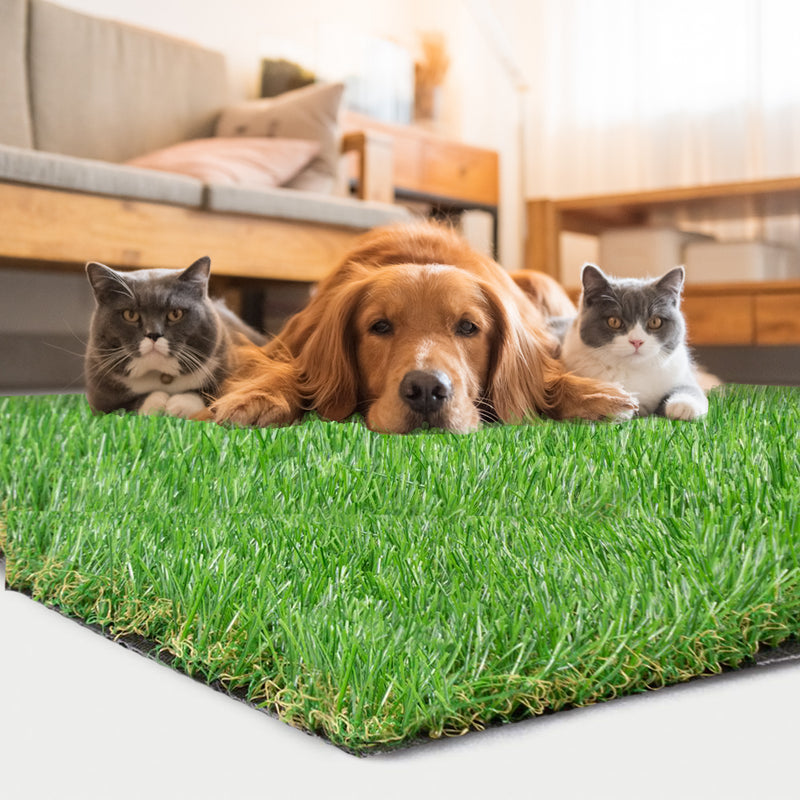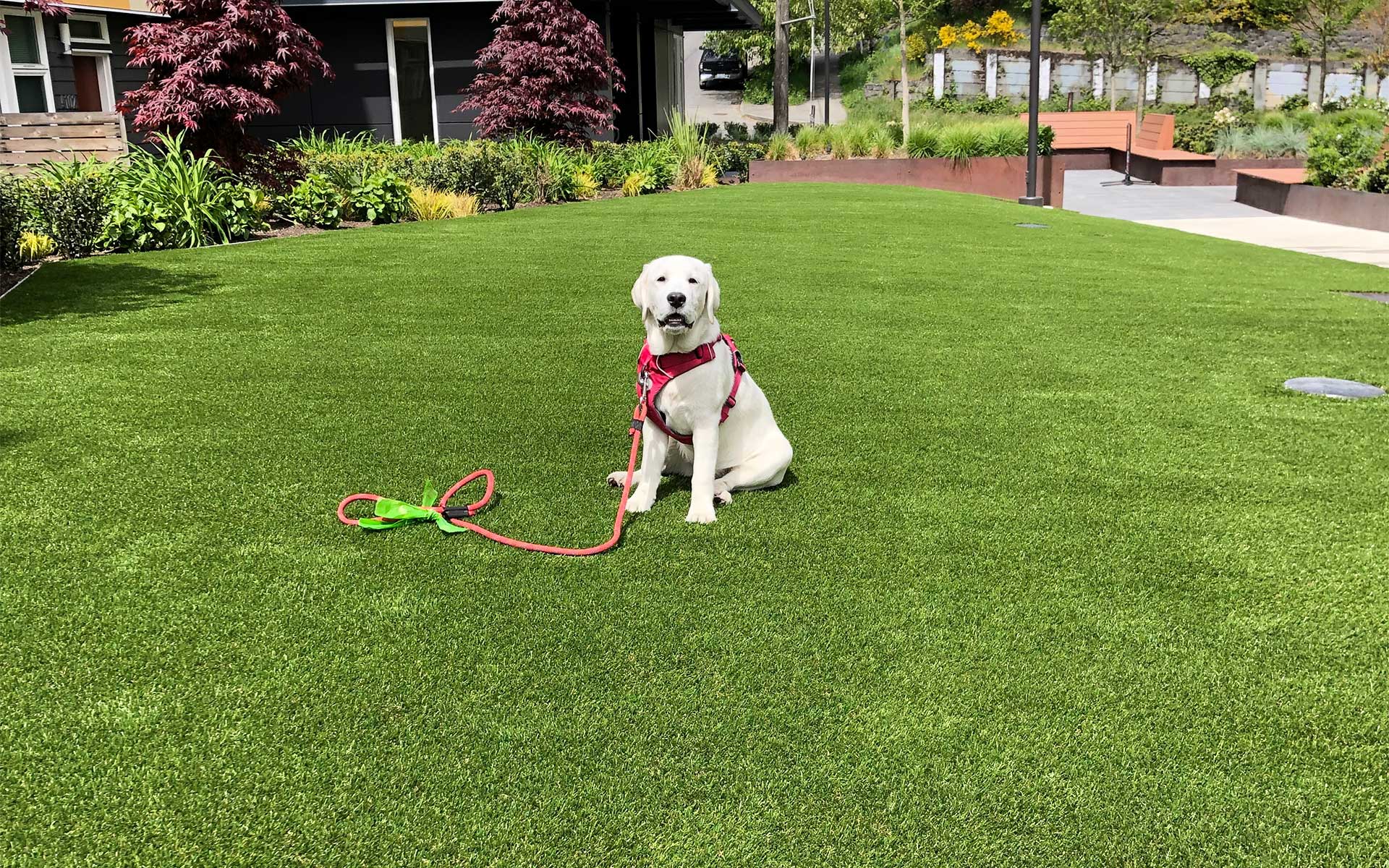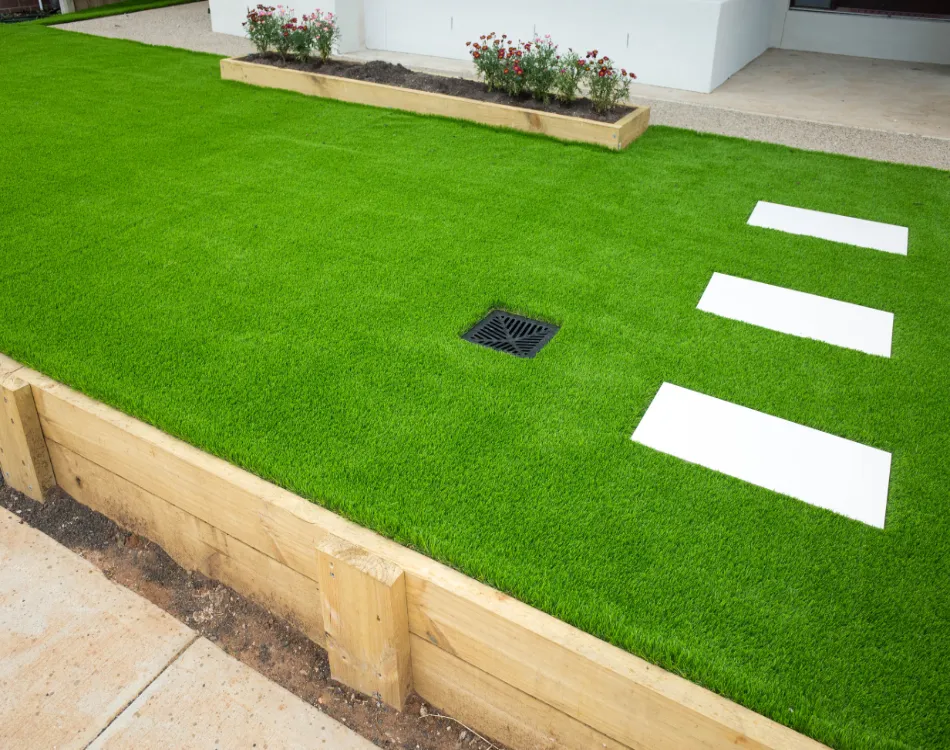Look Into the Environmental Perks of Opting for Artificial Grass Solutions
The fostering of synthetic turf services presents an engaging opportunity to address pushing ecological challenges. By dramatically decreasing water usage and minimizing the application of hazardous chemicals, these options not only promote lasting landscape design yet additionally safeguard local ecosystems.
Water Preservation Conveniences
One of the most considerable benefits of fabricated lawn is its ability to save water. In contrast, fabricated grass does not require watering, dramatically decreasing the total demand for water sources.
By getting rid of the requirement for normal watering, synthetic grass adds to lasting landscape methods and assists alleviate the environmental effect of excessive water intake. In addition, the preservation of water encompasses the reduction of runoff, which can lead to dirt disintegration and river contamination.
Furthermore, the installment of synthetic grass enables towns and property owners to allot water sources much more effectively, concentrating on important usages such as drinking water and agriculture. The shift towards synthetic grass not just promotes responsible water usage but also straightens with wider ecological objectives targeted at protecting natural deposits.
As areas increasingly focus on sustainability, the water preservation advantages of artificial turf provide a compelling situation for its fostering in property and commercial landscape design tasks.
Minimized Chemical Usage
The transition to artificial turf substantially lowers the dependence on chemical treatments frequently utilized in all-natural yard maintenance. Conventional turf management commonly includes the application of herbicides, pesticides, and plant foods to advertise development and control parasites. These chemicals can present threats to human health and wellness, regional wild animals, and the environment, adding to soil and water contamination.
On the other hand, synthetic grass gets rid of the demand for these harmful substances. As soon as set up, it requires marginal upkeep, largely consisting of normal cleaning and occasional infill replenishment. This decrease in chemical use not just profits the prompt environment but likewise adds to more comprehensive environmental security. By lessening the launch of synthetic substances into the community, synthetic grass promotes healthier soil and water systems.
Additionally, the absence of chemical runoff related to synthetic grass setups aids secure local waterways from pollution, supporting marine life and preserving biodiversity. Phoenix turf companies. As communities significantly prioritize lasting techniques, choosing synthetic grass provides a sensible service that straightens with environmental conservation objectives. With this change, home owners can delight in rich eco-friendly areas without jeopardizing ecological health, paving the means for a much more sustainable future
Lower Carbon Impact

In addition, the setup of synthetic Get More Information lawn can cause significant water preservation. Natural lawns need substantial amounts of water for watering, which not only contributes to the carbon footprint connected with water extraction and therapy however also pressures local water sources. In contrast, synthetic grass needs marginal maintenance, requiring no watering, consequently substantially lowering water usage and its linked power costs.
Furthermore, the long life of synthetic grass contributes to its decreased carbon influence. With a lifespan of up to 15 years or more, the need for regular replacements is decreased, causing much less waste and lower power consumption in production and dealing with conventional turf choices. In general, synthetic grass presents a sustainable alternative for eco conscious landscape design.
Habitat Conservation
Environment conservation is an essential factor to consider in the argument over landscaping options, particularly when comparing synthetic grass to all-natural grass. All-natural turf lawns usually require substantial maintenance, consisting of the usage of plant foods, herbicides, and visit site pesticides, which can adversely affect neighborhood ecological communities. These chemicals can leach into the soil and waterways, harming native flora and fauna and disrupting neighborhood habitats.
In comparison, synthetic grass presents a possibility to decrease the environmental footprint of landscape design. By choosing synthetic lawn, property owners can minimize the interruption of all-natural environments connected with standard grass care methods. Fabricated lawn eliminates the requirement for hazardous chemicals, consequently protecting nearby wildlife and keeping the integrity of surrounding ecosystems. Additionally, the installation of synthetic grass can bring about the conversion of former turf areas right into more biodiverse landscapes, such as pollinator gardens or native plant areas, which can support regional wildlife.
Eventually, the shift to synthetic turf not only preserves water and minimizes upkeep efforts but likewise promotes a more unified partnership between human activities and the native environment, promoting habitat preservation while doing so.
Long-Term Sustainability
Long-lasting sustainability is a critical consider assessing the advantages of fabricated grass over traditional yard yards. One of one of the most considerable benefits of artificial lawn is its sturdiness; it can last as much as 15-20 years with very little maintenance, whereas all-natural turf requires regular reseeding and replacement. This long life decreases the demand for continuous sources, such as water, fertilizers, and chemicals, which are necessary for maintaining a healthy and balanced grass yard.
Additionally, artificial grass adds to a reduction in carbon exhausts connected with grass care devices. Traditional yards often call for gas-powered lawn mowers, trimmers, and blowers, every one of which add to air pollution. Artificial turf companies phoenix. On the other hand, artificial grass removes the demand for such tools, advertising a cleaner environment
In addition, the production of man-made lawn increasingly uses recycled products, enhancing its sustainability profile. As makers take on environment-friendly techniques, the environmental footprint of man-made lawn proceeds to diminish.

Verdict
The adoption of synthetic grass options presents significant ecological advantages, consisting of considerable water preservation, decreased dependence on damaging chemicals, and a lower carbon impact. Synthetic lawn aids in maintaining all-natural habitats by minimizing land disruption and advertising lasting sustainability via the use of long lasting products. Collectively, these aspects emphasize the potential of synthetic grass to contribute positively to ecological wellness and offer a feasible choice to traditional landscaping methods in a significantly resource-conscious world.
In contrast, man-made grass does not require watering, significantly decreasing the general need for water sources. By lessening the release of artificial substances into the community, man-made turf advertises healthier dirt and water systems.
Moreover, the installment of fabricated grass can result in substantial water preservation. In comparison, synthetic lawn requires minimal upkeep, calling for no watering, thereby considerably reducing water usage and its linked power prices.
